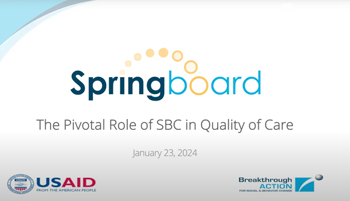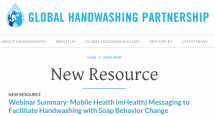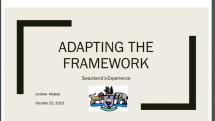The Pivotal Role of SBC in Quality of Care – Springboard Webinar Recording
This Springboard webinar connected users to global experts on improving quality of care. Presenters introduced viewers to quality of care and shared how they have used social and behavior change (SBC) to improve service delivery.
Last modified: February 19, 2024
Language: English
Source: Johns Hopkins Center for Communication Programs - Breakthrough ACTION
Year of Publication: 2024




